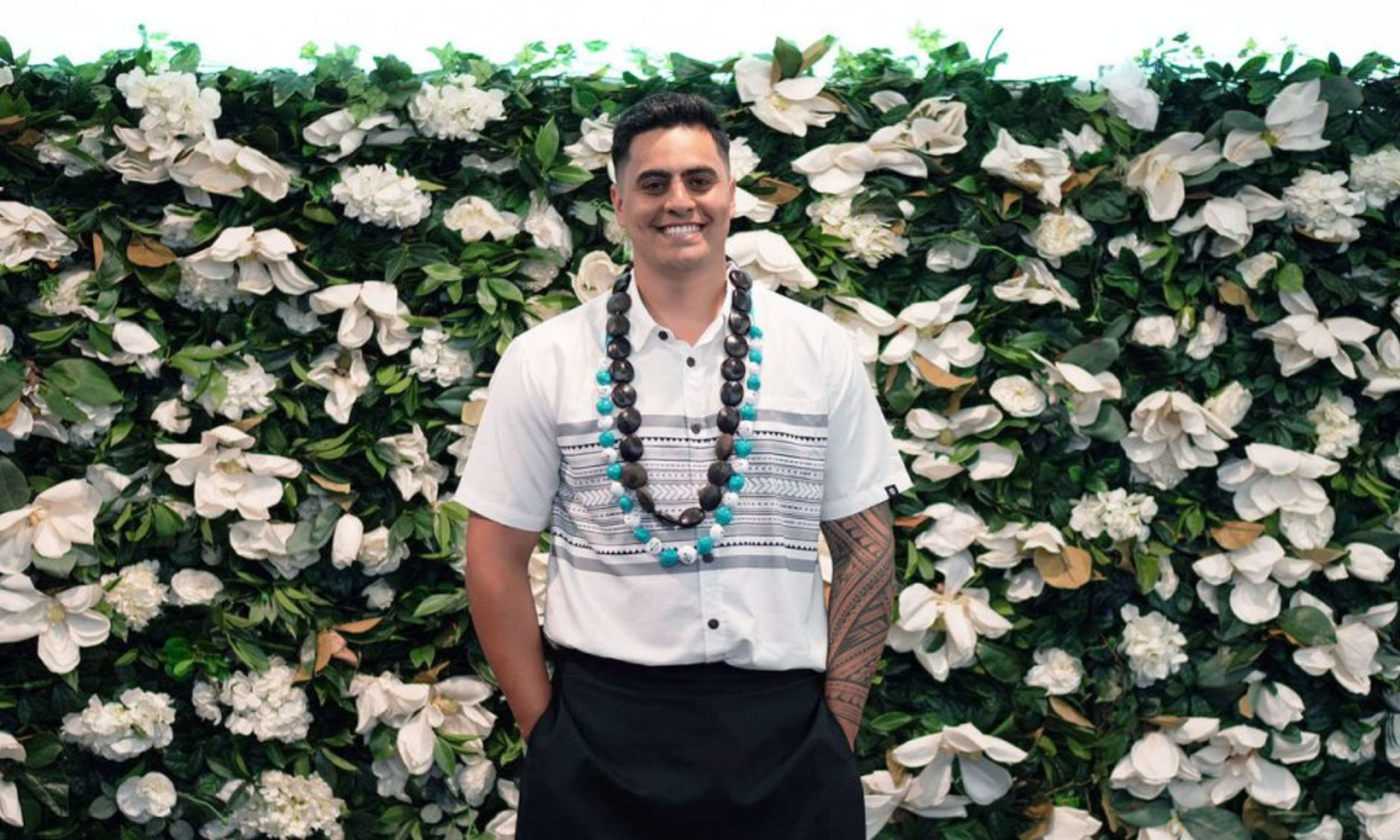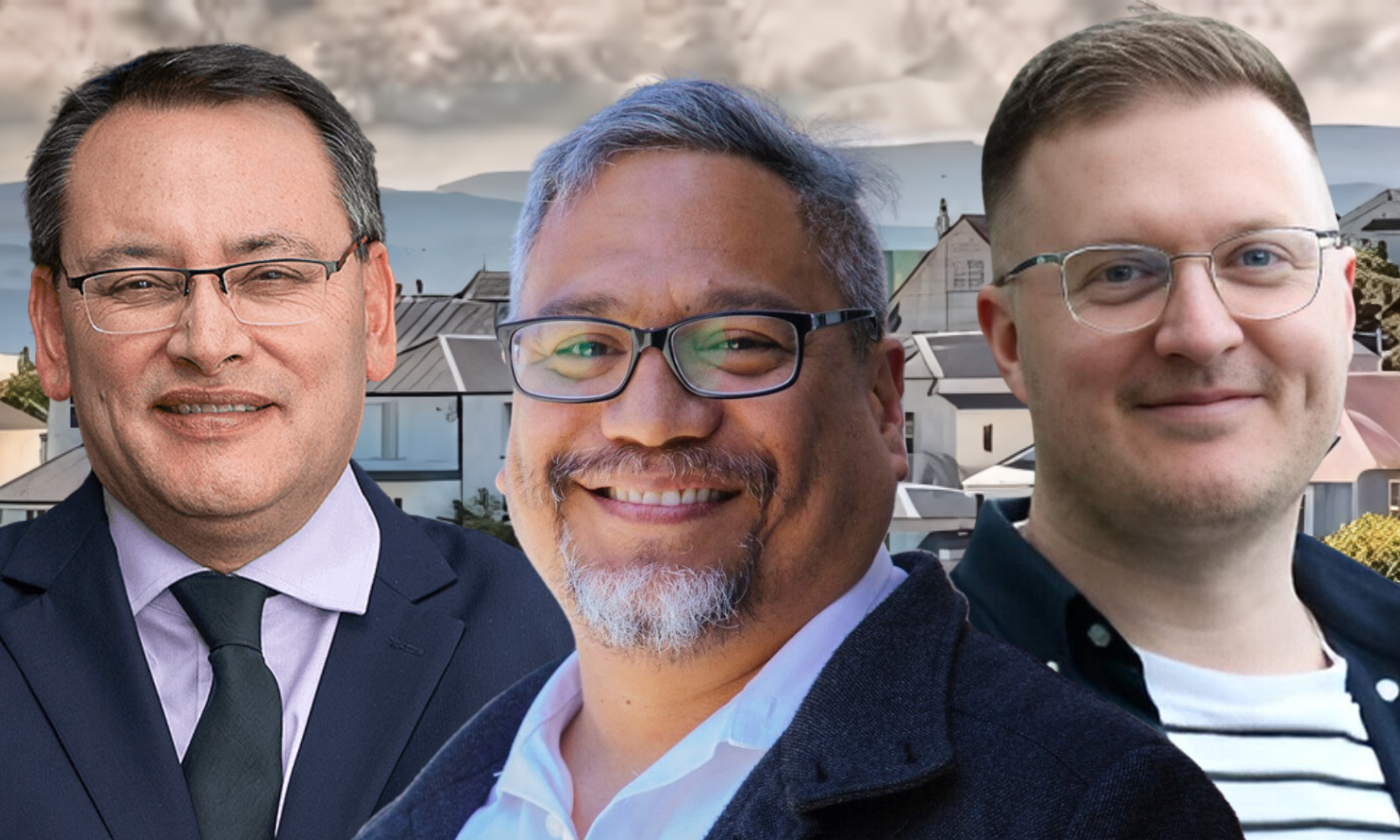

Locked Out is a four-part radio documentary series by PMN News and Pacific Mornings.
Photo/ PMN/ Tony Sok
Has New Zealand abandoned the dream of being a home ownership society?
Episode one of PMN's latest podcast, Locked Out, looks at why New Zealand gave up on the dream that was promoted in the 1960s and 70s of Kiwis owning their quarter acre slice of paradise.



Operation Xmas Drop 2025: US and allies deliver hope to remote Pacific communities

Our generosity is our strength but we must spend wisely this Christmas - expert

Excellence and possibility: Meet the new face of Pacific medicine in Aotearoa



Operation Xmas Drop 2025: US and allies deliver hope to remote Pacific communities

Our generosity is our strength but we must spend wisely this Christmas - expert

Excellence and possibility: Meet the new face of Pacific medicine in Aotearoa
In the 1980s, more than half of Pacific households in Aotearoa New Zealand lived in houses they owned. But by 2018, it had dropped to just 21 percent. In a four-part radio documentary series Locked Out, PMN News and Pacific Mornings examines what led to the decline and potential solutions for getting back to the home ownership rates of four decades ago.
To listen to episode one - Abandoning the Home Ownership Society - click the link below
When Labour MP Barbara Edmonds was a child in the 1980s, her family had up to 23 people living in their home.
“Our house was the transit lounge for our families when they migrated from Samoa,” she told a housing conference in Christchurch last year. She was the Minister for Pacific Peoples at the time.
“And we always had beds, or back in those days, mattresses on the floor because when the day shift came home, the night shift went to work."
It’s not an unfamiliar story for many Pacific families, but back then more than half of Pacific households owned their own homes. Today only one-in-five Pacific households are homeowners (21%) - Māori are at 31 per cent and New Zealand Europeans at 60 per cent.
The current Minister for Pacific Peoples, National MP Dr Shane Reti says there are many reasons for the decline which comes down “fundamentally to reduced supply and increase in cost”.
Like his ministerial colleague, the Housing Minister Chris Bishop, Dr Reti is quick to point out that home ownership rates have fallen for all New Zealanders.
Supply side discussion
“It’s very much a supply side discussion,” said Dr Reti. “We are just not making and building enough houses and so Pasifika have seen the consequence of that as well.
“Firstly, a cost of living crisis, you have to be able to afford it, and so we know that Pasifiika can be in lower value jobs sometimes, and so that cost of living crisis has an impact as well on home ownership.
“So it’s a combination of a number of things that have also fallen across the general population as well, that have affected Pasifika.”
Green MP Teanau Tuiono agrees that rents and mortgages are more expensive now but he points the finger at “decades of privatisation and the neoliberal economic agenda” that has pushed a lot of Pacific people out of home ownership.
“I'm old enough and I lived through those times and I remember those times the way that everything got sold off, public services were sold off.
“We have less job security these days and all of those things have a roll-on effect.” said Tuiono.
Housing researcher Dr Jordan King, who has a PhD in sociology from Auckland University, believes the decline in Pacific home ownership rates over the last four decades largely comes down to government policy and the ideas driving those policies at the time.

(From left) Minister for Pacific Peoples Dr Shane Reti, Green MP Teanau Tuiono, Housing Researcher Dr Jordan King.
Dismantling successful policies
“We have to look again at essentially government policy and the kinds of ideas that came into fashion in the 1980s and 1990s that sort of dismantled that previous system that we had, that had generated these high ownership rates,” Jordan said.
According to Dr King, in the 1920s and 30s Aotearoa New Zealand had low home ownership rates. But after the World War II the thinking and economic policy shifted.
“The idea that you could just let the market house people, that fell out of fashion in New Zealand. And what you saw was the state, successive governments, and not just Labour governments but National governments too, investing a lot of resource into building up home ownership.
“And that really put the wind in the sails for home ownership. And of course for many Pacific people, the kinds of policies that were put in place enabled them to get into housing.”
The governments of the time were prepared to put money into new builds, as well provide opportunities for Kiwis to be funded into their homes.
Families were able to cash in their family benefits for a deposit and low interest mortgages were available from the government through the State Advances Corporation.
“Those kinds of mechanisms were extremely important for getting into a house because the state had made it so that the mechanisms were there to get people in. But successive governments changed their language and philosophy for what the government should do in housing.
“Instead it said, individuals should look after their own housing needs, that there's a market, and that the market will provide the housing and that people will make their own choices, and the government shouldn't be active in housing,” said Dr King.
Walking away from home ownership
“It should sort of just help those who absolutely needed it by giving them kind of the accommodation supplements to buy their own housing in the private market. And it sort of stepped away from state housing as well.
“So that meant that money that was going into supplying those new build houses, that dried up and that made it less palatable for developers to want to build that kind of affordable housing because the money that they could make was in that more premium sector.
“So the size of our houses went up, but the numbers of people in home ownership started to go down. And that kind of support for the deposits and low cost mortgages, that dried up too.
“So what did that add up to? Well, it meant for many Pacific families who had been put into home ownership because of those mechanisms, well, they were slowly taken away and the amount of cheaper housing coming through the pipeline was lower.
“The state essentially walked away from its previous role in building a home ownership society and we've been on a sort of general glide path down since,” said Dr King.
Reporting by Ala Vailala, Christine Rovoi, William Terite and Samson Samasoni. Narration by William Terite. Produced by Samson Samasoni.